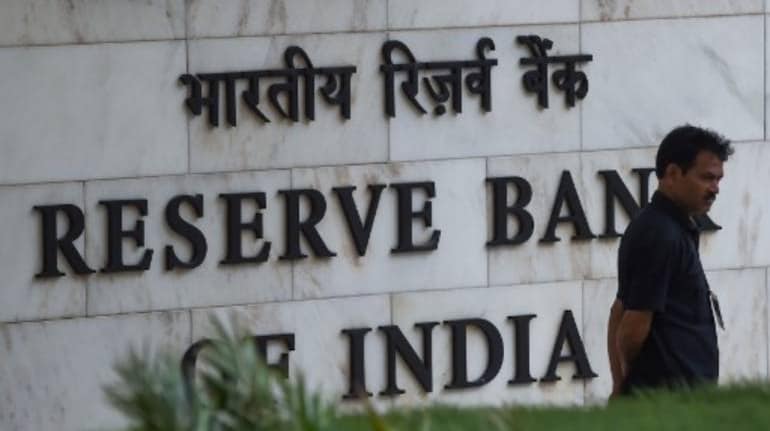



Corporate bond yields may rise by 5-15 basis points (bps) in the coming days as non-banking finance companies are expected to increase market borrowings after the Reserve Bank of India tightened risk weight norms for consumer loans, experts said.
With the RBI increasing the risk weight on loans to consumers and NBFCs, bank borrowing may become costlier and NBFCs may move to the corporate bond market to raise funds.
Analysts said banks may raise lending rates by 50-60 bps over the next few quarters in response to the RBI’s move. One basis point is one-hundredth of a percentage point.
“There will be a marginal increase in spreads for NBFCs as the underlying credit market charging higher rates to NBFCs may percolate to the bond market. I believe a 10-25 bps increase in spreads,” said V Ramachandra Reddy, DGM – head treasury, Karur Vysya Bank.
The RBI said on November 16 it increased the risk weight on consumer credit exposure of commercial banks and NBFCs by 25 percentage points. Consumer credit of banks and NBFCs attracts a risk weight of 100 percent, which has been revised to 125 percent.
The RBI also increased the risk weight on bank credit to NBFCs by 25 percentage points in all cases where the extant risk weight as per external rating of NBFCs is below 100 percent. In terms of extant norms, loans by banks to NBFCs, excluding core investment companies, are risk weighted as per the ratings assigned by accredited external credit assessment institutions.
RBI governor Shaktikanta Das had in October flagged the high growth in certain components of consumer credit and advised banks and NBFCs to strengthen their internal surveillance mechanisms, address the build-up of risks, if any, and institute suitable safeguards.
Venkatakrishnan Srinivasan, founder of Rockfort Fincap, said banks will be selective in lending to NBFCs hereafter. Some banks may tap AT1 bonds.
“NBFCs, fintech entities will have to borrow funds from other segments of investors/private credit players over and above their existing banks. The cost of borrowing of such entities tends to go higher in due course,” Srinivasan added.
Axis Capital said in a report that bank loans form 32-65 percent of the NBFC borrowing mix and estimated that the cost of funds for NBFCs would increase by 10-20 bps, depending on their ratings.
Also read: RBI’s tightening loan norms will not impact borrowers in near-term
Why will banks increase lending rates?
Analysts said banks may increase lending rates to protect their margins.
“We expect cost of funds to increase for NBFCs and increased reliance on market borrowings. With banks looking to protect returns on risk-weighted assets on their NBFC exposure, we expect banks to increase lending rates by 50-60 bps over the next few quarters, resulting in net income margin pressure for NBFCs,” said an analyst at IIFL Securities.
Axis Capital said banks may increase lending rates for some products to ensure that the return on capital is not adversely impacted. For retail loans, most banks lend to existing customers, which helps with better underwriting. Hence, while loan growth in these segments may slow, the change in risk weight norms alone may not lead to a sharp reduction in growth as long as credit costs remain low.
Also read: Decoding RBI credit risk weight impact across banks, NBFCs; how each lender will lose, gain
Corporate bond issuances and rates
Fundraising through corporate bonds in October fell to its lowest level in 2023, which experts attributed to the rise in yields on these instruments and tight liquidity conditions. According to data compiled by Prime Database, companies and banks raised Rs 34,632 crore through corporate bonds in October.
Small Industries Development Bank of India, National Bank for Agriculture and Rural Development, Power Grid Corp of India, Bajaj Finance, and India Infrastructure Finance Co. were the top five borrowers, together raising 35 percent of the total funds.
SIDBI raised Rs 3,022 crore, NABARD raised Rs 2,518 crore, Power Grid raised Rs 2,250 crore, Bajaj Finance raised Rs 2,236 crore, and India Infrastructure Finance raised Rs 2,000 crore.
In October, the yield on corporate bonds across maturities rose 8-18 basis points. The yield on three-year corporate bonds, which was at 7.79 percent at the end of September, rose to 7.87 percent in mid-October, before ending at 7.81 percent at the end of October, according to Bloomberg data.
The yield on corporate bonds maturing in five years was at 7.71 percent in September and rose to 7.89 percent in mid-October before declining to 7.76 percent at the end of October.
The yield on 10-year corporate bonds moved up to 7.78 percent at the end of October from 7.70 percent at September-end. It rose to 7.84 percent mid-October.
Discover the latest Business News, Sensex, and Nifty updates. Obtain Personal Finance insights, tax queries, and expert opinions on Moneycontrol or download the Moneycontrol App to stay updated!
Find the best of Al News in one place, specially curated for you every weekend.
Stay on top of the latest tech trends and biggest startup news.